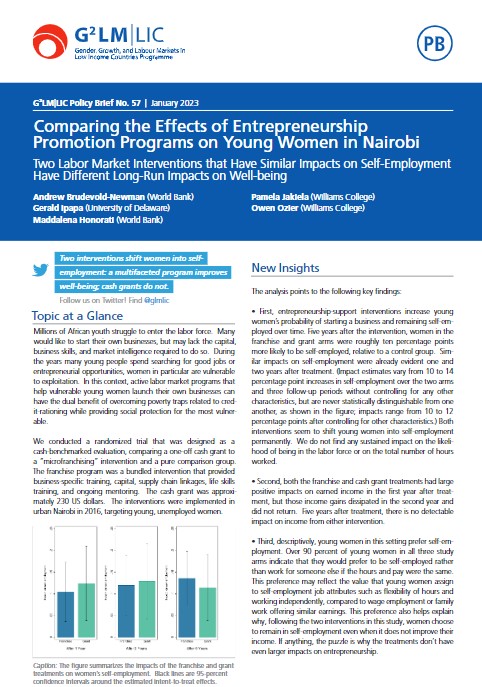Millions of African youth struggle to enter the labor force. Many would like to start their own businesses, but may lack the capital, business skills, and market intelligence required. During the years many young people spend searching for good jobs or entrepreneurial opportunities, women in particular are vulnerable to exploitation. In this context, active labor market programs that help vulnerable young women launch their own businesses can have the dual benefit of overcoming poverty traps related to credit-rationing while providing social protection for the most vulnerable.
The authors conduct a randomized trial designed as a cash-benchmarked evaluation, comparing a one-off cash grant to a “microfranchising” intervention and a pure comparison group. The franchise program was a bundled intervention that provided business-specific training, capital, supply chain linkages, life skills training, and ongoing mentoring. The cash grant was approximately 230 US dollars. The interventions were implemented in urban Nairobi in 2016, targeting young, unemployed women.
